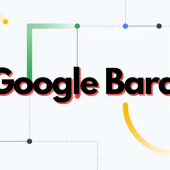The Google Revolution: A Look at the Fascinating History of the World's Most Popular Search Engine
In 1996, two PhD students at Stanford University, Larry Page and Sergey Brin, began working on a research project that would eventually become the world's most popular search engine. They initially named their search engine "Backrub," which was a play on the way the algorithm analyzed backlinks to determine the relevance of a webpage. The project quickly outgrew its initial scope, and in 1997, the pair decided to change the name to "Google," a play on the word "googol," which is a mathematical term for the number 1 followed by 100 zeros.
The early days of Google were challenging. Page and Brin had limited resources and had to rely on a mix of creativity and determination to keep their project afloat. They eventually secured funding from angel investors, which allowed them to move into their first office in Menlo Park, California, in 1998. That same year, they launched the first version of the Google search engine, which quickly gained popularity thanks to its simple design and highly accurate search results.
As Google continued to grow, the company began to expand its offerings beyond search. In 2000, Google launched AdWords, a platform that allowed businesses to advertise their products and services alongside search results. AdWords quickly became a major source of revenue for the company, allowing it to expand even further. In 2004, Google went public, raising $1.67 billion in its initial public offering (IPO) and cementing its position as one of the most valuable companies in the world.
Over the years, Google has continued to innovate and expand its offerings. In 2006, the company launched Google Maps, which quickly became the go-to source for online mapping and directions. In 2007, Google launched Android, a mobile operating system that has become the most popular in the world. And in 2015, Google reorganized itself under the parent company Alphabet, which allowed it to focus on a broader range of products and services.
Today, Google is an essential part of our lives. We use it to search for information, get directions, and communicate with others. It has also become a major player in the world of technology, with investments in everything from self-driving cars to artificial intelligence. Despite its incredible success, however, Google has not been without controversy. The company has faced criticism for its handling of user data, its dominance in the advertising industry, and its role in spreading misinformation online.
As Larry Page and Sergey Brin step back from their roles at Google, the company's future remains uncertain. But one thing is clear: the impact of Google on the world of technology and information will be felt for years to come. From its humble beginnings as a research project to its current position as one of the most valuable companies in the world, the history of Google is a story of innovation, determination, and world-changing impact.



